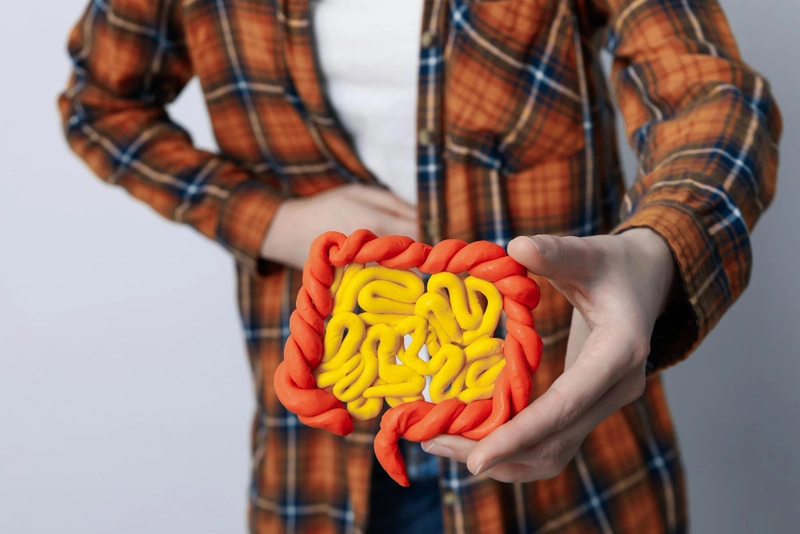- Published on: Oct 01, 2021
- 3 minute read
- By: Second Medic Expert
Why Is Cholesterol Management Important?
Why is cholesterol management important?
Cholesterol is a major component of cell membranes and provides rigidity, controls permeability, and regulates fat transport. It also helps regulate inflammation, homeostasis (balance), immune response, nerve signaling function, thyroid hormone activity, sex hormone activation/control/synthesis from complex proteins from ovarian follicles. Cholesterol is an essential structural component of all human cell membranes and also supports all other cell functions—and without sufficient dietary intake or production by the liver that amount in the bloodstream declines.
Cholesterol can cause arterial plaque buildup which is one of the main underlying causes of heart disease. It also encourages the formation of an atherosclerotic deposit. Since cholesterol-rich atheromatous plaques are less stable than normal vessels, they are prone to rupture, and then they subsequently cross into their stable neighbors causing turbulence in blood flow.
If LDL cholesterol levels remain high, it contributes to the progression of atherogenic changes in the vessel wall that block the endothelial function (the cells lining your arteries) which undermines cardiovascular protection for both coronary artery disease and peripheral vascular disease patients. Eating a diet high in saturated fat is linked with an increased level of cholesterol in the blood.
Cholesterol is a type of fat that circulates through your bloodstream and gives all of your cells the energy they need, as well as helping to keep skin healthy. A diet rich in cholesterol may protect from strokes and heart attacks, but eating too much-saturated fat can still have harmful effects on your health over time.
It seems like what you should be asking is "why isn't this information more common?" After all, it's not just about high cholesterol causing heart disease - it's also about eating less than 10?lories from saturates (the fatty acids found in butter, cheese, beef) which might protect against inflammation over
Cholesterol-rich plaque developed in the blood vessels, causing them to narrow and stiffen, reducing blood flow. It can lead to angina (chest pain) or heart disease. If one's cholesterol levels are high throughout life - due either to heredity or diet, chances are that risk of developing coronary artery disease is higher than for people with lower levels. The more often LDL particle size is small, called "Pattern A," the less likely it is that someone will progress into coronary artery disease over time. Conversely, the more often LDL particles are large, called "Pattern B," then they're at greater risk than those who have fewer Pattern-B LDLs. So minimizing carbohydrates and other sugars helps prevent high cholesterol.
The higher your cholesterol, the more likely it is for plaque to build up in the blood vessels, which can potentially restrict or reduce blood flow. There are two major health issues that come with the lack of cholesterol management: heart disease and strokes. About 27% of American adults have prediabetes, which is a pre-existing condition that suggests they'll develop type 2 diabetes in the future. When an individual has type 2 diabetes, their erythrocytes become deformed and do not function as well as normal erythrocytes might. This leaves them at risk for high blood pressure and myocardial infarctions (otherwise known as heart attacks). Additionally, individuals with type II diabetes often eventually end up on cholesterol medications like statins to control their levels of LDL cholesterol (the bad kind).
Improving cholesterol levels is an easy way for many people to maintain a healthier body, with a really potent payoff in the form of longevity and better physical condition. If your cholesterol levels are already optimal then you don't have anything to lose by eating one or two pieces of dark chocolate every day. Eating dark chocolate has been shown to lower LDL cholesterol and raise HDL-cholesterol, the good type that's been linked with a lower risk of heart disease. Dark chocolate contains cocoa butter which contains stearic acid, the part of the fat that doesn't affect either blood clotting or inflammation in healthy individuals.
It's important because cholesterol is also the precursor to many hormones and hormone-like substances called steroids, so it's evolutionarily adaptive for humans to maintain low cholesterol levels as a result. Maintaining low cholesterol levels can reduce your risk of heart disease and other conditions such as heart attacks, stroke, atherosclerosis (hardening of the arteries), Alzheimer’s disease or dementia.
Cholesterol is a waxy substance that's found in all animal cells and causes calcification of tissues and leads to cell death. It also forms the framework for certain pathogens, such as the herpes virus. Some people may need cholesterol medications because their own ability to make it depletes (decreases) over time, such as in cases of hypothyroidism or Addison's disease. Low-density lipoprotein, or LDL, is one indication that cholesterol has built up and can build up within veins and arteries leading to serious health problems like heart attack and stroke. Patients should be aware of these risks and consult with physicians regularly about their lipid levels while on therapy. They need cholesterol to build cell walls, and it's an essential part of our metabolism.
It delivers oxygen from the lungs or gills to all parts of your body, including the heart, brain, and other organs. It helps make hormones like estrogen and testosterone. Plus, cholesterol is how cells move nutrients in and out... We get more than half of our cholesterol from the food we eat... But your liver also makes more when you have too many calories -- especially from fat-containing foods that have saturated fats or high amounts of unhealthy trans fats.
Our Services
Request A Callback
Recent Posts
Best Treatment Options for IBS in India
Jul 03,2025
Insomnia in Teens and How to Manage It
Jul 01,2025
Silent Symptoms of Cervical Cancer Women Ignore
Jun 27,2025
Seasonal Flu vs Covid-19: 2025 Comparison
Jun 25,2025










